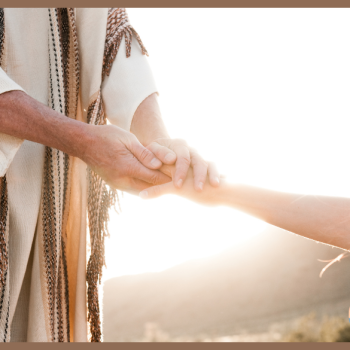In an especially high-profile case from 2006, a number of Muslim taxi drivers in Minneapolis were refusing, for religious reasons, to transport from the airport terminal passengers who were carrying liquor or had dogs with them. After numerous passenger complaints, the airport authority came up with a solution that would have respected the drivers' freedom to discriminate based on their religious beliefs. Airport cabs were to display a yellow or red light, with the red light indicating that the driver would not transport liquor or dogs. (A long and very comprehensive summary of the case is here.)
That solution was unacceptable to many constituencies, including some of the Muslim taxi drivers, who feared losing business. The airport authority dropped the plan in the face of a tremendous public backlash. It chose instead to require that all airport cabs transport liquor and dogs, and it imposed a punishment of license suspension for 30 days, followed by a 2-year revocation for multiple infractions. A group of Muslim drivers sued to get those punishments lifted, but in 2008, the punishments were upheld in state court.
As indicated at the link, there was almost no sympathy expressed by the public for the religious objections of the taxi drivers. As is often the case when Christians or Jews debate a religious exemption, some Muslims agreed with the drivers' interpretation of sharia, and some did not. In any case, the religious objections of the drivers were overridden.
In each of these cases, the New Jersey judge's standard of balancing religious freedom with "other important societal goals" has been invoked. The cases all deal with "discrimination" in one form or another, but the principle of elevating "important societal goals" over religious freedom is likely to cover more than discrimination. Why, for example, should it not be an important societal goal to have contraception provided through one's employer-provided health insurance, regardless of any other factor?
It is not clear that the principle of religious exemption, as we now practice it, has an answer for that. If religious freedom is not a virtual absolute, what authority does it have in any circumstances to draw lines in the sand? May not legislatures and courts posit "important societal goals" that override religious freedom? If so, what criteria, if any, will set boundaries for the adoption of important societal goals?
American law resolved decades ago that in many areas of life, we do not have freedom of conscience if the result can be interpreted as "discrimination." That is the case in private transactions as well as in the operations of government.
Religion has retained a certain amount of privilege in this regard, but the principle is long established that the individual conscience can be overridden by the government in the interest of preventing "discrimination." The weight of argument has shifted away from the idea that government should not intrude on conscience, or should intrude only at the lowest level of government, or in the rarest of cases. It has shifted toward the idea that religion is uniquely fenced off from federal and state government interference, even though much else involving conscience and individual choice is not.
How long can religious beliefs effectively retain this privileged status? The answer is not preordained. Some Americans already regard religion's privilege in law as unwarranted, at least as it relates to specific issues. With the gradual de-privileging of the individual conscience, the idea of religious exemption is not based on the principle of intellectual liberty, per se; it is simply a special exemption pertaining to religion. It begins to look very particular, and less defensible, against the multifarious backdrop of government intervention.
There can ultimately be no remedy in jurisprudence for the encroachment of government interventionism on religious belief. Religious beliefs are beliefs, after all, and beliefs are now subject to direct punishment with hate-crime laws, and indirect punishment with anti-discrimination lawsuits and rulings from government agencies.
The fate of religious freedom lies instead with the American people. Are we willing to back off from our growing determination to control what our fellow citizens do and think? Imagine, for example, that there were no government mandates of any kind outlining what health insurance policies must cover. Imagine no mandates requiring employers to provide health insurance. In those cases, we would not be controlling other people's decisions about health insurance to the extent we do now, but we would also not have brought ourselves to the point of requiring Catholic employers to violate their religious beliefs.
The more things we attempt to regulate and control, the more our laws will collide with freedoms of all kinds, including religious freedom. Is it better to have the courts spend decades deciding, from one situation to another, what is a protected religious freedom and what is an "important societal goal"? Or is it perhaps better for our governments to regulate and mandate less, and leave the people to make more of their own choices?
We Americans are not as dedicated to freedom for our fellow citizens as we pride ourselves on being. If we cannot let private employers decide not to pay for contraception coverage; if we cannot let private inn owners decide whose receptions they will host; if we cannot let cab drivers make decisions we disagree with about whom they will transport—we are no longer operating on a basis of freedom, but in an intricate network of rules from which we can sometimes wangle exemptions.
The exemptions will eventually lose the philosophical battle, because they have already lost the war.





